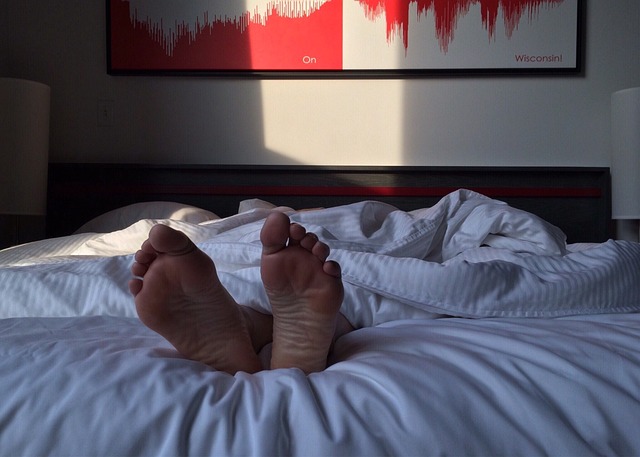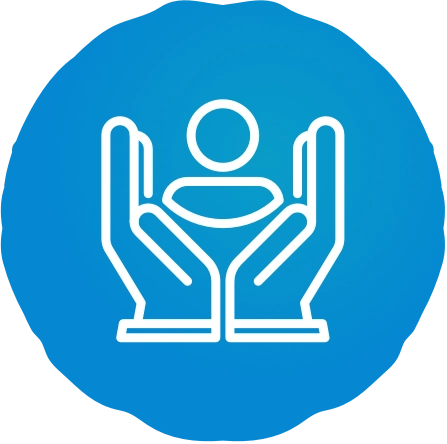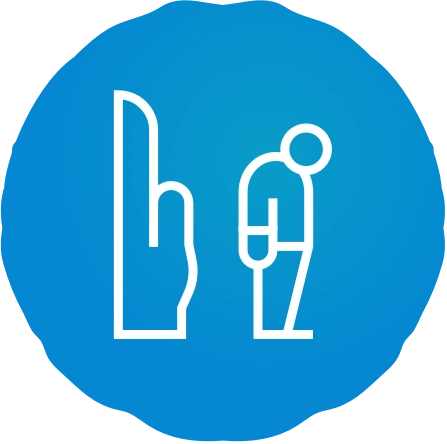I am on the waiting list
Useful information and support that you can access while on our waiting list
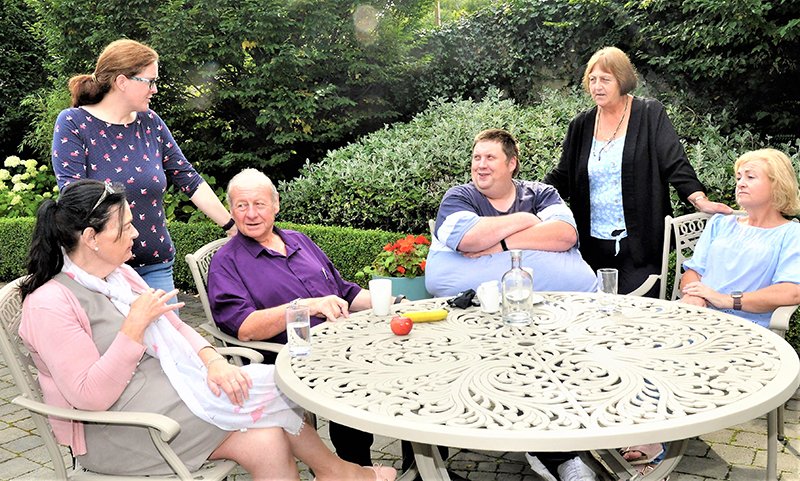
Irish Coalition for People living with Obesity (ICPO)
Support and advocacy group for people living with obesity provided by people living with obesity. You do not need to be on our waiting list to link in with this support;
Talking about Weight - HSE booklet
A booklet with information and guidance to
- learn more about your daily eating and activity habit
- find useful information to help you on your journey to healthier lifestyle habits
- set your own goals and plan for challenges you might face
- find ways to keep track of how you are doing
Why is sleep important for healthy weight?
A healthy sleep pattern is important for overall health, as well as weight and metabolism. Sleep pattern includes how many hours of sleep each night, how restful and restorative is the sleep (sleep quality), and if sleeping and waking is happening in line with the dark/light cycle (circadian alignment).
When a person does not get enough sleep, or if the quality of sleep is not good, or if they are going to sleep very late at night or working night shifts, this has a negative effect on metabolism and the hormones that help to regulate hunger. This can make people more likely to eat higher energy foods and be less active.
You can read more about why sleep is important, and advice for healthy sleep at;
The sleep hygiene diary below will allow you to become more aware of your sleep
Have you had a sleep study to assess for obstructive sleep apnoea (OSA)?
Obstructive sleep apnoea is a condition where the quality of sleep is not good, because of changes in breathing patterns when sleeping. This can have a negative impact on your health and energy levels. There is a direct link between obesity and OSA, in that obesity increases the likelihood of having OSA, and having untreated OSA can make it harder to manage your weight.
If you snore and/or feel tired even after a full night’s sleep, you might have OSA. You can speak to your doctor about arranging a referral for a sleep study to assess for OSA. A sleep study usually just involves wearing a sensor device while sleeping overnight at home. A small number of people may need further investigations in the hospital. If it turns out that you do have OSA, getting the right treatment is an important part of your best weight journey.
Impact of medications on weight
Some medications can have an effect on your appetite and/or metabolism, meaning that you are more likely to gain weight, and/or you can find it more challenging to lose weight.
There are particular medications that are more likely to have this effect, although people respond differently to medications, so even if a medication is commonly associated with weight gain, you may or may not experience this problem.
You can speak to your doctor about your medications, and ask if any of them could be contributing to difficulty managing your weight, and if there are any alternatives that you could try instead.
Obesity treatment medications
You can speak to your doctor about medications that are available to treat obesity, and if they may be an option for you. This may require some investigations (blood tests and a blood pressure monitor). More information on the range of options currently available in Ireland can be found under the treatment section of this website.
Obesity treatment medications are not routinely covered on the Medical Card or the Drugs Payment Scheme (DPS), however depending on other medical conditions, you may be eligible for reimbursement. If you have diabetes you are eligible for a Long Term Illness card. Please check with your GP if either of these schemes apply to you:


Mental Health and Weight
Chronic stress, bereavement, and trauma in the past, especially as a child, can all have an impact on physical health, including our ability to manage weight. You can speak to your GP about referral to psychology or counselling services, including bereavement counselling.
When a person has experienced abuse or neglect in childhood, we ask them to self-refer to the National Counselling Service. This is a HSE (no cost) nationwide service. There is usually a waiting list of at least 6 months. Untreated childhood trauma needs to be addressed before undergoing bariatric surgery. Even when a patient has no interest in having bariatric surgery, we encourage people to avail of this service if they have a history of childhood abuse or neglect.
If you think this may be helpful for you, you can read more at the following link
Movement for health
Movement is important for maintaining and improving health, the best movement is the movement that is accessible and available to you. Try to keep movement in your everyday routine.
Some groups that support additional movement that may be available to you depending on where you live are
If the area that you in live is not covered by these supports, there may be a similar support local to you, your local Social Prescribing Network may be able to support you to connect to your local group
The Irish Collation for People living with Obesity run a movement group
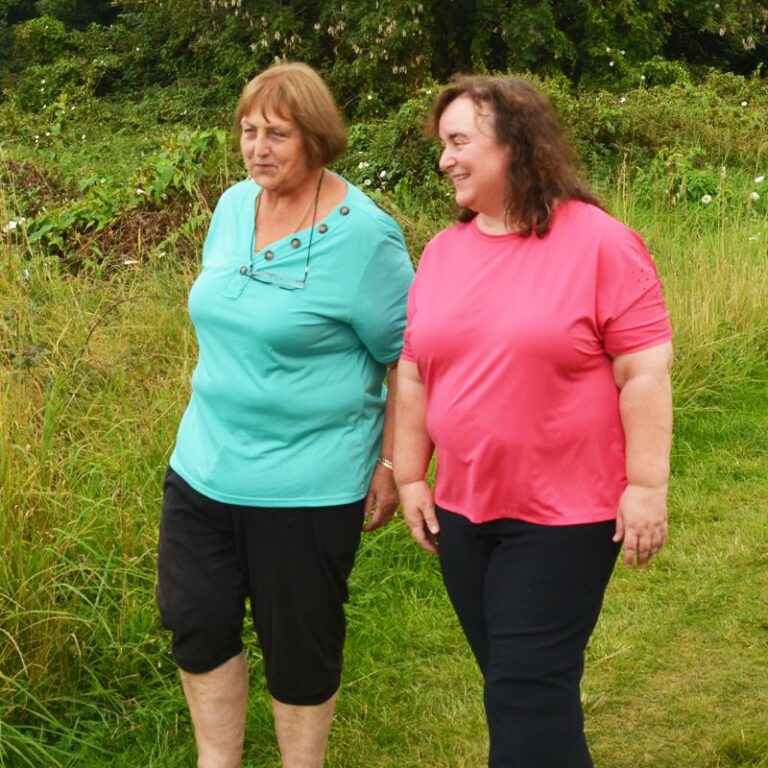
Best Health programme
If you are interested in attending the Best Health program, please talk to your GP to see if they can arrange a referral. They can assess if you meet the criteria for referral, and confirm that there is a program running in your community.
HSE support courses for people with obesity
The Best Health programme is a group course for people with obesity.
The course covers:
healthy eating
physical activity
sleeping well
behaviour change
This programme is designed by a team of experts in nutrition, exercise, health psychology and weight management. It is designed to be a safe and supportive environment to explore the things that may be affecting your health and weight. During the programme you will:
- Learn about the factors that affect weight loss
- Support you to identify positive changes that are right for you in your life
- Practise new skills such as making a physical activity plan, tracking progress, meal planning and reading food labels
- Access social support and shared lived experience
How the Best Health Programme is delivered:
It is a free 12 month course, delivered by a dietitian
Before you start, you will have an appointment with the dietitian to identify your needs and agree a personal plan
It runs weekly over the first few months, followed by support sessions over the rest of the year.
You can attend the programme online or face to face around the country.
The sessions are delivered in a relaxed and friendly way so that all participants can learn from each other.
Each person who takes part gets a handbook.
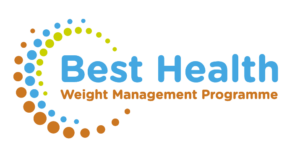
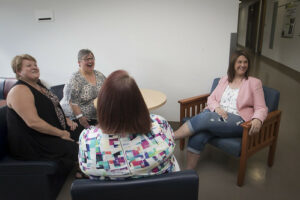
How you can access the programme:
The Best Health Programme is free to attend.
Ask your GP or healthcare team about a referral to the Best Health Programme.
For more information see here.

